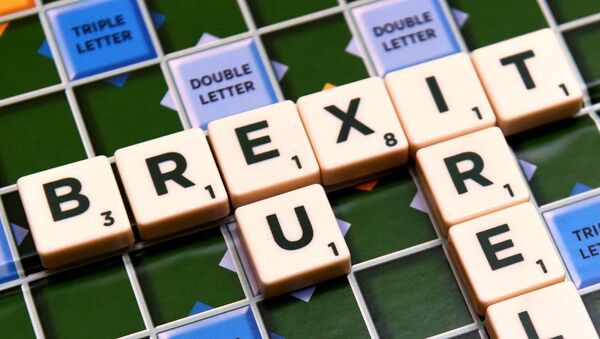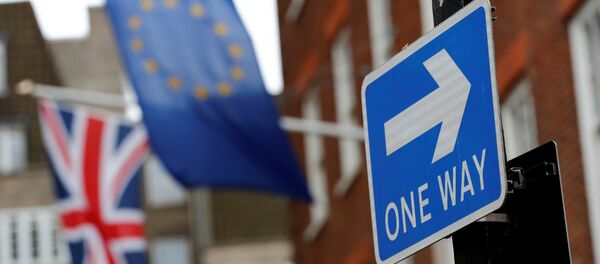Sputnik has discussed Mrs May’s plan and Anglo-Irish relations amid the Brexit uncertainty with Donnacha O’Beachain, associate professor at the School of Law and Government, Dublin City University.
Sputnik: Brexit has re-introduced profound uncertainty into Anglo-Irish relations. What impact can the recent developments have on relations between the two countries?
Sputnik: Some experts have said that criticism of Mrs May on the deal for the border was unfair and that it wasn’t in anyone’s interest to see her in chaos. What are your thoughts on that?
Donnacha O’Beachain: It’s true to an extent that some of the criticism is unfair because she has secured from the European Union the best deal she could have secured considering what her red lines were, which as I said were no membership for the United Kingdom within the EU customs union and the EU single market. That said, the crisis is very much of her own making. She put down very strong red lines too early. She wasn’t upfront with Parliament and the people about the choices that would have to be made if those red lines were to be respected. And you might say that the chickens are coming home to roost now for not being more upfront and not engaging in bravado at very critical early stages of the process, things like Brexit means Brexit or what she wanted was a red, white and blue Brexit, essentially outlining slogans but not any great detail. And, of course, for triggering Article 50 as she did in March 2017 when it’s clear now that there was no plan about what Britain actually wanted to achieve from these negotiations, or at least in terms of some realistic objectives.
Sputnik: Vice President of Sinn Féin Michelle O'Neill said the UK will inevitably break up, and she stressed that a hard exit should trigger a referendum on Northern Ireland quitting the union. How high are the chances that Belfast will push for secession?
Donnacha O’Beachain: They are certainly enhanced by the prospect of a no-deal Brexit. I mean Brexit has profound uncertainty; we did have stability, we did have certainty with the Good Friday Agreement negotiated in 1998 that regulated political relations between Ireland and Britain and within Northern Ireland. Now, with Brexit and the prospect of Northern Ireland being taken out of the European Union against its will – it’s important to emphasize that the majority of people in Northern Ireland voted to stay in the European Union – the likelihood of a united Ireland is certainly enhanced. And not only, Theresa May has herself recognized that a no-deal enhances those who are looking for the breakup of the United Kingdom; that includes nationalists like Sinn Féin in Northern Ireland and it includes also nationalists in Scotland. The Scottish were, as you know, encouraged to stay within the United Kingdom on the basis that it would mean leaving the European Union if they voted for independence. Now they feel that they have been cheated; they have stayed in the United Kingdom but only to be dragged out of the European Union against their will.
READ MORE: Twitter Erupts as EU Official Trolls UK Over Brexit With Spice Girls Lyrics
Sputnik: There have been warnings of ministerial resignations if Conservative MPs are banned from voting for a plan that helps stop a no-deal Brexit. What impact could it have on the prime minister?
Donnacha O’Beachain: Theresa May has been hemorrhaging ministers since she called that unnecessary general election in 2017; she’s lost a Foreign Secretary, Boris Johnson, she’s lost two Brexit Secretaries and dozens of lesser office holders. So, it’s not something new to have the prospect of mass resignations; every time, indeed, she’s tried to make a firm decision on a direction to go in terms of these negotiations, she’s lost people along the way. I think it would definitely weaken her already weakened position. You have to remember that she only has secured 60 percent of the Tory party behind her in that recent vote of confidence; and the Tories are not a majority in the British Parliament, so her position is really that of a lame duck prime minister. Politically, she hasn’t I think got much of a future; and the question really now is which of those options that I outlined earlier the British Parliament is going to choose. And as she pointed out herself, not enough to simply say that they don’t want a no-deal Brexit; they have to say what they are in favour of. And as of yet, Ireland, the European Union and, indeed, the British people are still waiting for Parliament to come to that consensus.
The views and opinions expressed in this article are solely those of the speaker and do not necessarily reflect those of Sputnik.




